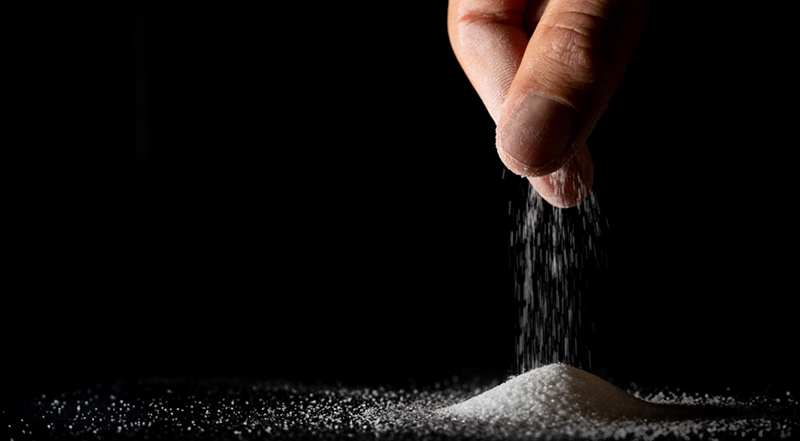The science of smacking: a pinch of salt required

Academic studies on smacking sometimes make extraordinary claims.
“There is no time to waste” an article in the Lancet says; “all countries should heed the UN’s call to uphold children’s human rights and promote their wellbeing by prohibiting physical punishment in all forms”.
That’s not a scientific claim though, is it? Are these academics using their position to campaign for something ideological rather than scientific? We should read their research with a pinch of salt.
There are hundreds of scientific studies on the effects of smacking, but the research is not as clear cut as it might first appear.
The conclusions about the harmful effects of smacking are still contested, and there are limitations which undermine definite conclusions.
Limitations
Smacking is not a disciplinary tool parents use in isolation. It is often a last resort after parents have used a range of measures to instruct their children and direct their behaviour. So it is impossible to isolate the effects of smacking. The apparent negative effects could easily be driven, at least in part, by other actions parents take.
Context is also a crucial consideration. Many studies focus on smacking but do not consider other factors that impact the child’s development, for example, the child’s age, the frequency and severity of smacking, and the presence of other forms of discipline and support. These all interact to shape a child’s outcomes. While studies sometimes incorporate these confounding factors into their analysis, they cannot all be accounted for.
Another limitation is that studies use different definitions of smacking. In some cases, smacking is not fully distinguished from other forms of corporal punishment that are not ‘reasonable chastisement’. In others, smacking is grouped alongside other forms of punishment, such as shouting or time out.
Some samples are not representative of the wider population, either due to a small sample size or due to the selection of participants. For example, many smacking studies use the Fragile Families and Child Wellbeing Study dataset, which looks mostly at experiences of children in families where the parents are unmarried. We know that family stability has a significant impact on home environment and child outcomes, so these samples are not representative.
We also need to be wary of publication bias. It’s undeniable that there’s an academic trend when it comes to smacking. Studies that don’t fit the fashionable view are less likely to be published, resulting in a skewed view of the literature and an overestimation of the harmful effects of smacking.
Narrative
Smacking studies are not impartial. It’s very noticeable that the vast majority are written by those who call for a ban on reasonable chastisement. The quantity of research can also make it difficult to disentangle robust science from well-intentioned advocacy efforts.
Advocacy research does not present neutral results; it seeks to influence public opinion. Its starting point is a belief that smacking must be banned, and arguments are marshalled to persuade a doubting public, in this case ordinary parents who know that smacking can be an effective tool for disciplining children.
One of the most recent high profile reviews on smacking is The Lancet’s narrative review. Interestingly, three of its authors had previously written a report, Equally Protected, which demanded the Scottish Government change its position on reasonable chastisement in 2015. Another author was Elizabeth Gershoff, a familiar name in the field of anti-smacking research. Jillian van Turnhout, another author, was an independent Senator in Ireland who “championed and secured the effective ban on the physical punishment of children in Ireland”.
Headlines
There is a strategic campaign to ban parental smacking and it tries to use scientific research to promote its agenda. But media reports of these studies should not be interpreted as synonymous with scientific fact.
Dramatic headlines in the news are often derived from far more tentative results and weaker findings than it first seems. The Daily Express reported in January 2019 that “A smack ‘takes toll over time’”, but this was misleading. The headline overstated the research conclusions and overlooked the fact that the study actually considered ‘harsh physical punishment’, which included “pushing, grabbing, shoving, slapping, and hitting”. Behaviours that constitute abuse are covered by existing laws and the impact of reasonable chastisement should not be lumped in with these violent behaviours.

